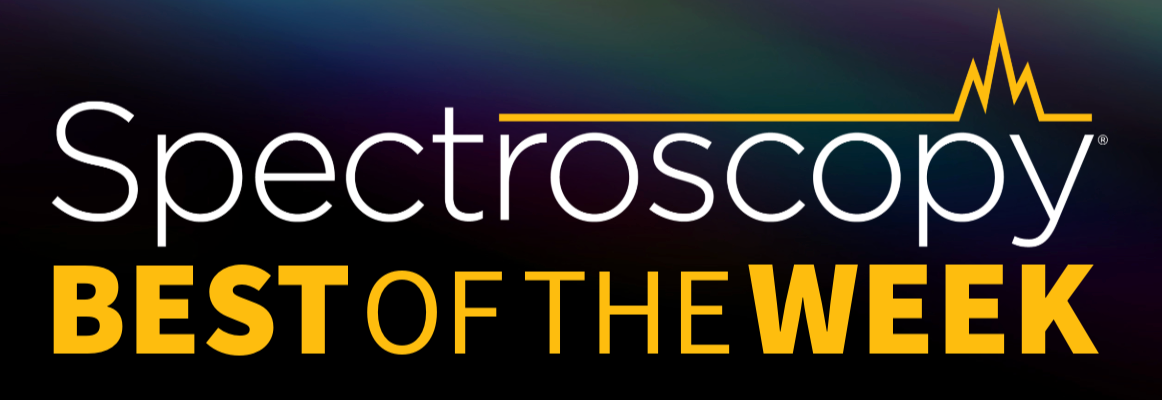Best of the Week: Recapping Analytica 2024
This week, Spectroscopy published a variety of articles on the hottest topics in analytical science. Below, we’ve highlighted some of the most popular articles, according to our readers. Happy reading!

Analytica 2024: An Interview with Uwe Karst
Caroline Hroncich, Will Wetzel
Uwe Karst is the Chair of Analytical Chemistry of the University of Münster in Münster, Germany. Having held this position since 2005, Karst has authored more than 350 publications in peer-reviewed scientific journals. Karst’s research interests are liquid chromatography–mass spectrometry (LC–MS), with particular focus on the simulation of oxidative metabolism reactions based on the analysis of non-polar analytes by means of LC–MS and speciation analysis using LC with electrospray- and inductively coupled plasma–MS (ICP-MS). In this interview from Analytica 2024, our team asks Karst about his perspective on analytical chemistry instrumentation and what trends he expects in the future of imaging.
Analytica 2024: The Latest Applications in Chemometrics
Caroline Hroncich
During Analytica 2024, experts from across Europe came together to discuss the latest trends and challenges in chemometrics. The session was chaired by Claudia Beleites, chief executive officer and owner of Chemometric GmbH, and Marcel Dahms, data analyst at LightGuard GmbH in Germany. Topics include calibration transfer and domain adaptation spectrometry, transfer and multivariate regression models between infrared (IR) and near-infrared (NIR) instruments as applied to electronic cigarettes, and how portable NIR devices can be used for the analysis of illicit drugs.
Using Spectroscopy to Tackle Climate Change
Caroline Hroncich
As part of Analytica 2024, there was a session where multiple experts spoke about how new gas sensors can help address the needs of energy transitions. Sensing technology can help scientists better detect gases in the environment, which is timely as scientists work to develop better strategies for addressing challenges like climate change. Topics include the decarbonization of industrial processes, Raman gas analysis for energy transition, and using saturated-absorption cavity ring-down spectroscopy (SCAR) to address global warming, among others.
New Instrument Development in Spectroscopy
John Chasse
In an Analytica 2024 session hosted by Uwe Karst of the University of Münster, experts from various universities and companies discussed the latest trends in spectroscopy technology, and how they can be used in various applications. During the first presentation, Boris Mizaikoff of Ulm University discussing sensing platforms that benefit from cascade lasers combined with miniaturized photonic platforms providing direct access to molecule-specific information. This was followed by other scientists, including Svenja Berit Seiffert of BASF in Germany, who discussed her team’s recent research into laser ablation–inductively coupled plasma–mass spectrometry (LA-ICP-MS) being combined with immunohistochemical (IHC) staining with lanthanide-labeled antibodies.
Will Wetzel
Recently, Molly Lockart, a professor in the Department of Chemistry and Biochemistry at Samford University in Homewood, Alabama, and Brad Pierce, a professor in the Department of Chemistry and Biochemistry at the University of Alabama, collaborated on a study that investigated the mechanism of 3-mercaptopropionate dioxygenase (MDO), an enzyme that plays a role in the oxidation of thiol-bearing compounds. This substance contains the serine (S), histidine (H), and tyrosine (Y) (SHY-motif), a specific sequence of active site residues that interact with the iron site in the enzyme. Using pulsed electron paramagnetic resonance spectroscopy, the researchers tested different computation models of the MDO iron site, which were coordinated with both substrate and nitric oxide (NO).
AI-Powered SERS Spectroscopy Breakthrough Boosts Safety of Medicinal Food Products
April 16th 2025A new deep learning-enhanced spectroscopic platform—SERSome—developed by researchers in China and Finland, identifies medicinal and edible homologs (MEHs) with 98% accuracy. This innovation could revolutionize safety and quality control in the growing MEH market.
New Raman Spectroscopy Method Enhances Real-Time Monitoring Across Fermentation Processes
April 15th 2025Researchers at Delft University of Technology have developed a novel method using single compound spectra to enhance the transferability and accuracy of Raman spectroscopy models for real-time fermentation monitoring.
AI-Driven Raman Spectroscopy Paves the Way for Precision Cancer Immunotherapy
April 15th 2025Researchers are using AI-enabled Raman spectroscopy to enhance the development, administration, and response prediction of cancer immunotherapies. This innovative, label-free method provides detailed insights into tumor-immune microenvironments, aiming to optimize personalized immunotherapy and other treatment strategies and improve patient outcomes.